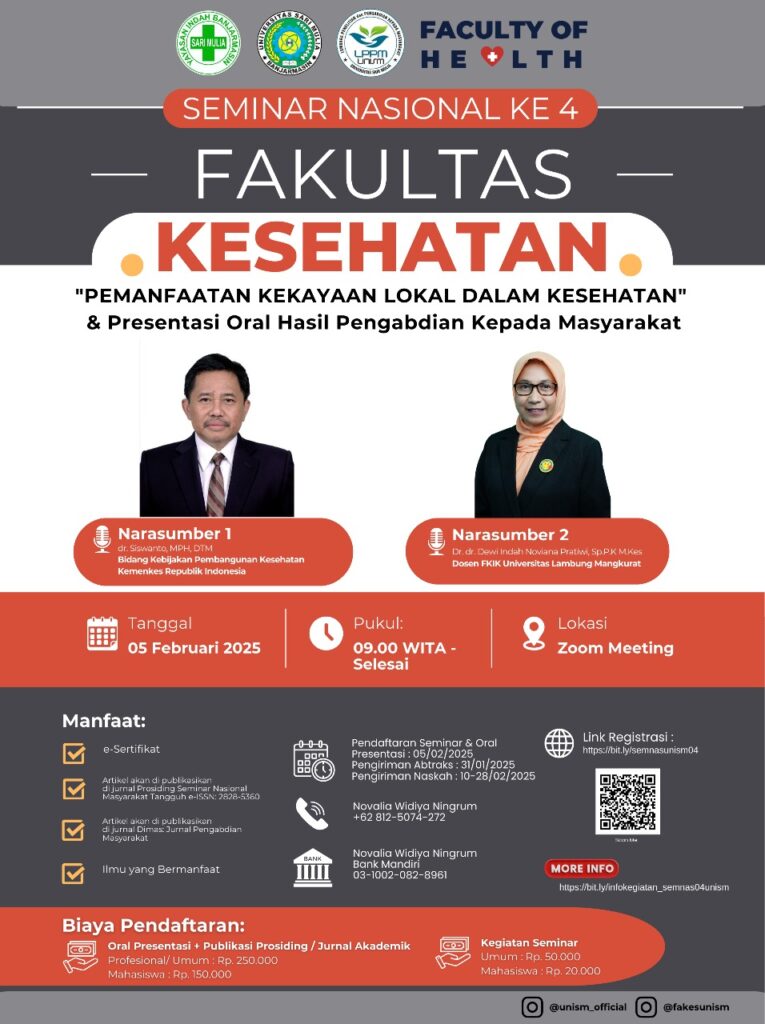R Reproductive Health Education In Women Of Fertilizing Age (WUS) And HIV/Aids at The Martapura Women's Community Institution
Keywords:
HIV/AIDS, WUS, Reproductive Health, EducationAbstract
Reproductive health is complete physical, mental and social well-being in all matters related to systems and functions, as well as reproductive processes and not just conditions that are free from disease or disability (ICPD, 1994 in Rosyida, 2019). The case of the Human Immunodeficiency Virus (HIV) in Indonesia will increase in 2023, a spokesperson for the Ministry of Health said that transmission of cases is dominated by housewives, based on data from the Ministry of Health, the number of housewives infected with HIV has reached 35%, this activity accounts for around 30% of transmission from husband to wife, and the impact increases by 5,100 cases every year. The aim of the activity is to provide reproductive health education to women of childbearing age as well as education regarding HIV/AIDS and its prevention. The method used is lectures and questions and answers. Community service will be carried out directly to women of childbearing age at the Martapura women's correctional institution with the flow of giving questionnaires before giving the material, giving the material, demonstrations, discussions and questions and answers, as well as distributing questionnaires after giving the material with the aim of finding out differences in knowledge and changes in attitudes before giving material and after giving material. Evaluation of activities is carried out by looking at the comparison of the results of the pre and posttest questionnaires with a total of 15 questions
References
A. S. Umrah, I. Indriani, and I. Suriati, “PENINGKATAN PENGETAHUAN TENTANG KESEHATAN REPRODUKSI PADA PASANGAN USIA SUBUR,” Jurnal EMPATI (Edukasi Masyarakat, Pengabdian dan Bakti), vol. 3, no. 3, p. 218, Oct. 2022, doi: 10.26753/empati.v3i3.825.
Hasanah Hasyim, “Pemahaman Kesehatan Reproduksi Bagi Perempuan,” Swwa, vol. 1, 2016.
Dewi.Purnama Indah Nur, Rafidah, and Yuliastuti Erni, “Studi literatur faktor yang berhubungan dengan kejadian HIV / AIDS pada wanita usia subur (WUS),” Jurnal Inovasi Penelitian, vol. 3, 2022.
“Laporan eksekutif perkembangan HIV/AIDS dan penyakit infeksi menular seksual,” 2022.
R. Widiasih and A. Setyawati, “HEALTH BEHAVIOUR PADA PEREMPUAN USIA SUBUR DALAM MENJAGA KESEHATAN REPRODUKSI,” 2018.
E. Prasetya, S. S. I. Nurdin, and Z. F. Ahmad, “Hubungan Pemanfaatan Sumber Informasi Dengan Sikap Wanita Usia Subur Tentang Kesehatan Reproduksi,” Madu : Jurnal Kesehatan, vol. 10, no. 1, p. 1, Oct. 2021, doi: 10.31314/mjk.10.1.1-8.2021.
A. Prio, A. Santoso, M. Habib, K. A. Yudhianto, and T. I. Lestari, “Hak Reproduksi Pada Penderita Hiv/Aids Ditinjau Dari Sudut Pandang Hukum Dan Agama,” Jurnal Ilmu Sosial dan Pendidikan (JISIP), vol. 7, no. 3, 2023, doi: 10.58258/jisip.v7i1.5130/http.
N. Cahyani et al., “Studi Kasus Pertolongan Persalinan Oleh Bidan Terhadap Pencegahan Infeksi Penularan HIV/AIDS Pada Ibu Bersalin Di Kabupaten Tabalong.”
Diauddin, “Pasien pengidap HIV/AIDS diBanjarmasin tertinggi di Kalsel,” IDN TIMES KALTIM, Banjarmasin, Dec. 01, 2023.



